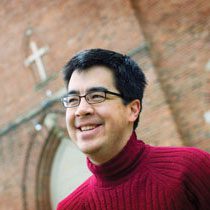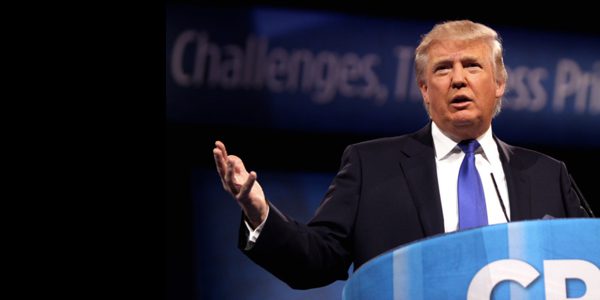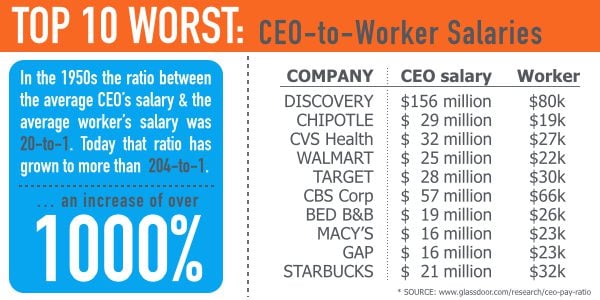 David Kuo died last week after a ten year battle with brain cancer. He was a trusted voice from Washington, beloved by many evangelical square pegs – myself included. David Kuo helped me to snip the final cords that held me to the Republican party – either party for that matter – encouraging me to allow my Christianity to define me completely. I will miss hearing from him. You could tell by the way he wrote that Kuo was a good guy. I get the feeling he was a lot of fun to be around & I’m bummed that I never got to meet him.
David Kuo died last week after a ten year battle with brain cancer. He was a trusted voice from Washington, beloved by many evangelical square pegs – myself included. David Kuo helped me to snip the final cords that held me to the Republican party – either party for that matter – encouraging me to allow my Christianity to define me completely. I will miss hearing from him. You could tell by the way he wrote that Kuo was a good guy. I get the feeling he was a lot of fun to be around & I’m bummed that I never got to meet him.
Today I’m posting a few things written about Kuo since his death. Joe Klein’s tribute at TIME is especially touching so I’ll start there. All three of these short articles are worth a full read.
David was asked to write speeches for Bush’s 2004 campaign and he agreed to write only one, Bush’s speech to the NAACP. He could not bring himself to write speeches about war, or speeches that attacked the Democrats. (Years earlier, at a White House prayer breakfast, he had approached Hillary Clinton after she offered a moving prayer and said, “I spend my days trying to defeat you and your husband, and sometimes that becomes personal anger, and that is wrong and I will never allow myself to do that again.”)
And then, one evening, driving home from a party, David had a seizure on Rock Creek Parkway. The car veered into oncoming traffic, but somehow his incredible wife, Kim, managed to maneuver onto the opposite verge. That was the tumor announcing its presence in David’s brain—even then offering the hope of survival against all odds, while showing David and Kim the brutal face of death. I cannot say enough about Kim’s courage and support over the last 10 years. She refused to be beaten. She and David had two children (David has two others by a previous marriage). David and Kim were going to live their lives, build a family, despite the cancer. They were going to make this thing disappear—and the cancer cruelly tantalized them. It went away. It actually disappeared once, twice. But it always came back.
I spent Easter Sunday with David in hospice. He couldn’t talk and had difficulty swallowing. We held hands for seven hours. He could understand what I was saying and he would squeeze my hand in response to my recollections of our times together—the red convertible, the Bible study, the times he asked me—a man old enough to be his father—for advice, the times, the many times, he gave me comfort and support and inspiration.
David always closed every conversation by saying, “I love you, Joe Klein.” I think he probably said that as often as my wife has. And so I must close this by saying one last time, “I love you, David Kuo.” And I will always love you, and I will always have your enormous heart and spirit to guide me. And I will miss you, and so will the world, especially the least of these.
From Michael Shear at NYTimes:
“National Christian leaders received hugs and smiles in person and then were dismissed behind their backs and described as ‘ridiculous,’ ‘out of control,’ and just plain ‘goofy,’ ” Mr. Kuo wrote in a memoir, “Tempting Faith: An Inside Story of Political Seduction.”
In interviews after he left the White House, including an appearance on “60 Minutes” in 2006, Mr. Kuo said Mr. Bush was a “good man” but faulted him as having failed to live up to his promise of “compassionate conservatism,” which he said could have helped the poor.
“Conservative Christians (like me) were promised that having an evangelical like Mr. Bush in office was a dream come true,” Mr. Kuo wrote in an opinion article in The New York Times in 2006. “Well, it wasn’t. Not by a long shot. The administration accomplished little that evangelicals really cared about.”
But in the prologue to his memoir Mr. Kuo wrote that his experience in government had given him clarity about the limits of politics. “I have seen what happens when well-meaning Christians are seduced into thinking deliverance can come from the Oval Office, a Supreme Court chamber or the floor of the United States Congress,” he wrote. “They are easily manipulated by politicians who use them for their votes, seduced by trinkets of power, and tempted to turn a mission field (politics) into a battlefield.”
“I took sides on issues that don’t have much to do with my faith,” he wrote. “Above all, I let the passions of politics distract me from what matters in life.”
Kuo was no less committed to capitalism in principle. But his faith was religious. He was one of the original “compassionate conservatives,” and he remained one to his dying day. As his friend Joe Klein of Time magazine put it: “He was a man of faith, rather than of religion. He called himself a Follower of Jesus. Many of his friends had ministries, but David’s church truly had no walls.”
Kuo’s passions were engaged less by honoring the contributions of the successful than by demanding attention to the suffering of those left out of the grand capitalist party — among them the 35 million Americans “at risk of hunger every day” and the million people “released from prison every year with virtually no one to help them productively re-enter society.”
…Kuo ruffled feelings after he left the White House when he sharply criticized the workings of President George W. Bush’s faith-based initiative. This disillusionment led to his suggestion of a Christian political fast in his 2006 book, “Tempting Faith.”
But Kuo was allergic to the idea of enmity and spent much of his time pleading with the left and the right to learn from each other. He wanted liberals to understand the power of religious faith “as a catalyst for radical change in people’s lives” and the importance of non-governmental charitable organizations. He urged conservatives to admit that “governmental programs can do — and have done — good,” citing as evidence food stamps, Social Security and Medicare.












